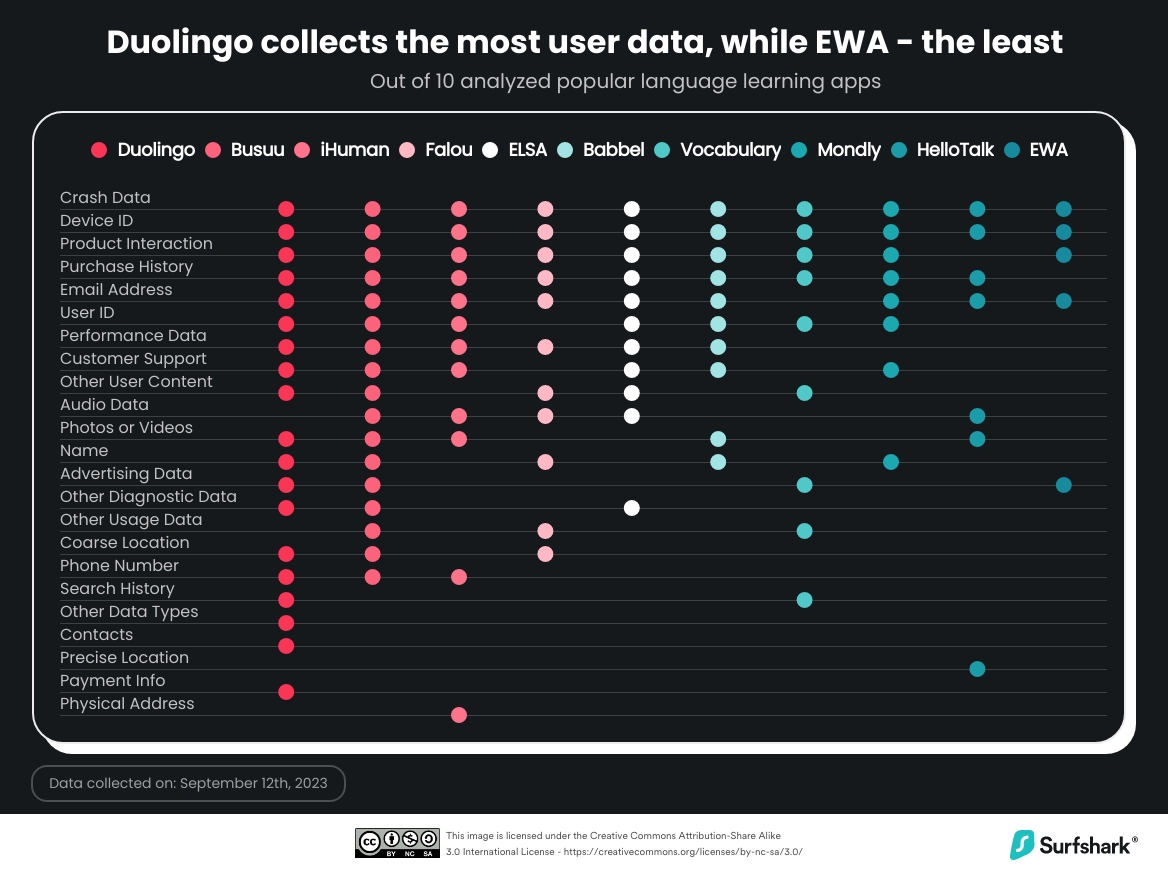Hey,
In the past I used Duolingo to study languages, but now I’m more privacy-conscious and looking for better options. And their recent data breach only solidified that intention.
I recently saw someone posted a comparison table for privacy policies of Duolingo and a number of competing products. Unfortunately I cannot find it now.
Can you give any suggestions? I’m not opposed to paid services, btw

Anki is a free and open source spaced-repetition flashcard program. You can find many premade decks for it for pretty much any language, and you can create your own cards from real-world content you read (“sentence mining”). You can also find free (or pirated) grammar guides and similar content online. These two resources will give you the foundation for making your input comprehensible, but the vast majority of the learning you’ll do will come from simply reading and listening to native content while making as much of an effort to understand it as possible (such as by looking up words in the dictionary using a browser extension like yomichan)
See this really good guide for learning Japanese (some of the information applies to other languages too): https://learnjapanese.moe

It’s this:

From this website: https://surfshark.com/research/chart/data-hungry-language-apps
I believe the consensus is that it was deliberately misleading, but I should find the post that was made on here again
Edit: here’s the discussion https://lemmy.one/comment/3233478
That’s not to say that Duolingo is privacy respecting, of course, far from it. But it may not be as bad as it was made out to be
OMG that’s the one! Thank you! I need to review the article and discussion though

How about a textbook with accompanying audio?
Yeah, I see many suggestions to do just that. Might be a good time to go check a local library.

If you’re lucky, your library may have a language lab. They’d be far less common now that we all carry access to tutorials in our pockets, but those that existed are unlikely to have been ripped out.
Then, some countries run language learning institutes abroad with classes at all levels, group or individual, from basic conversation for fun through to examined courses in specialised language for people who are fluent or near fluent (medical French, engineering Spanish, business German, etc.). These would also have decent libraries if the idea of a course doesn’t appeal.
For online study, EDx hosts a lot of language courses run by leading universities. These are typically free unless you wish to sit a proctored exam to obtain certification of the level you attain.

Depending on your privacy concerns, ChatGPT might be an option. Check YouTube for reviews and how to create a course outline

Can you give any suggestions?
What’s wrong with learning a language from an actual book?
